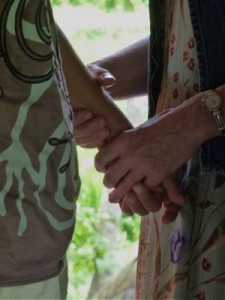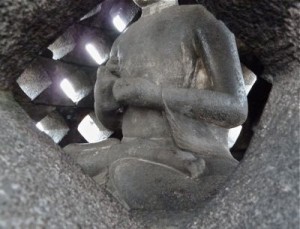Betrayal as a Journey of Transformation, Part 6: Self Care for Serious Betrayal or Major Transitions

“Let despair and disillusionment ravish the garden of your heart. You will replenish it once again with the seedlings of self-sufficiency and contentment. Life never is, never was, and never will be anybody’s Beloved.” ~Meher Baba
 If you feel disillusioned, seek and discover advantage in losing illusion. (See previous posts on Disillusionment.) Sharpen your sense of what is real for you right now.
If you feel disillusioned, seek and discover advantage in losing illusion. (See previous posts on Disillusionment.) Sharpen your sense of what is real for you right now.
Release resistance. This reduces pain. Accepting losses makes them more bearable.
Remember that simply having a body and a life is an opportunity. If you were plopped down in different country with nothing but the clothes on your back the days you have left would still be a gift.
Allow yourself plenty of time alone. If you need to, allow yourself to retreat from social life for a period of healing. Give yourself time to reorient, slowly and gently. Make loose plans down the line to do something you can look forward to when you think you will be ready.
Avoid making anything up–about yourself, about others, about your state. Stay with your process without labeling it as a negative state such as “depression.”
(I love this suggestion.) Let people know, “I’m a little IN right now,” rather than defining yourself as depressed, not wanting to connect, etc. This gives you room to feel, express, and grow.
Release your goals like an out-breath. You can pick them up in another season.
When you’re ready, set up short periods of simple interaction that doesn’t ask much of you, such as sitting with someone while they do a household task.
Keep to basics as much as possible: Sleep, walk, eat. Nourish, nurture, get light, get massage.
Focus on details in nature, like flowers, clouds, waves, the leaves of a tree responding to wind. Spend time in your garden or pick flowers if you like.
Release self-blame about being betrayed. You may have had cues or clues. You may have had inklings or premonitions. You may have ignored your guidance or felt shamed for doubting someone. You may have been clueless and feel stupid. Feeding these feelings distracts you from doing effective Inner Work and moving forward.
Ask not What caused this but What can I use it for.
Take breaks from thinking. If you cannot stop your brain, listen to audio books.
Find the sweet spot between avoiding feeling and indulging feeling. Allow feeling to surface into your awareness and run through your body. Giving sensation to feeling allows it to express through the body, completing its process. Do not dramatize it or keep it active by repeatedly reliving the past. Feel it fully and let it flow out as you feel it.
Acknowledge pain with compassion and use it to craft your inner world. Pain is a keen tool.
Use music or art to keep your expressive flow open.
Be compassionate to yourself in choosing with whom you discuss personal issues. Gently decline unsolicited advice.
Rearrange anything in your home or office that has become stagnant. Clean things out, throw things out, wear different colors, change your bedspread, cut your hair.
Practice forgiveness—but first accept your grief. Forgiveness is glorious. Premature forgiveness can be a spiritual bypass. Any spiritual practice used to avoid feeling is an agent of denial. Forgiving does not mean that you condone what someone has done. It means that you release claims and resentment to obtain peace.
 Positive focuses for the mind:
Positive focuses for the mind:
- In what ways does this betrayal serve my best interests?
- What illusions am I releasing?
- How does my orientation change without them?
- What needs am I able to satisfy gracefully if I consider my resources?
- What positive qualities and values are important to me in relationships going forward?
- What new possibilities are opening for me?
- What am I newly free and able to do?
Be loyal to yourself. This will bring more happiness than trying to maintain relationships with people who have issues with loyalty.
Last time I was betrayed I actually had some positive feelings about the experience. I sensed that the betrayal was a real opportunity to support myself fully, and even to accept support from others, who noticed the betrayal and stepped forward on their own. I felt a breath of relief as I released a burden I had been carrying. The burden consisted of false hope that a close friend would allow himself to trust our connection.
Inside You
They say, We cannot go barefooted in that courtyard.
There is nothing but thorns through there.
Love answers, The thorns are inside you.
Be silent, and pull what hurts out of your loving’s foot.
Then you will see gardens and secluded rose bowers,
and they will all be inside you.
~Mevlana Rumi (Translation by Coleman Barks)
What are YOUR best tips for emotional renewal and recovery?
Please share this post with those who need support.

















